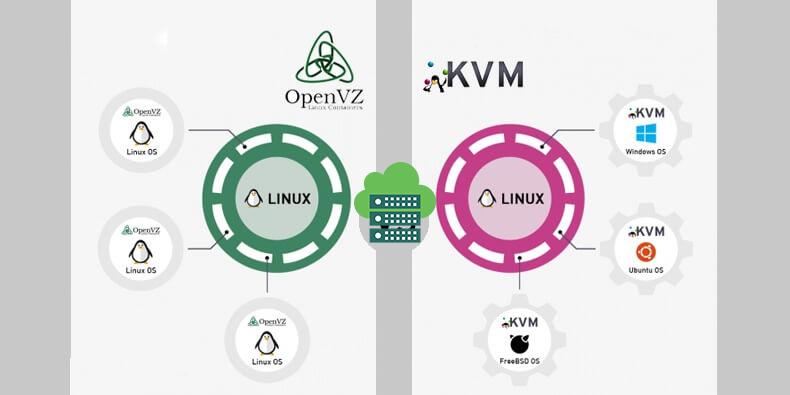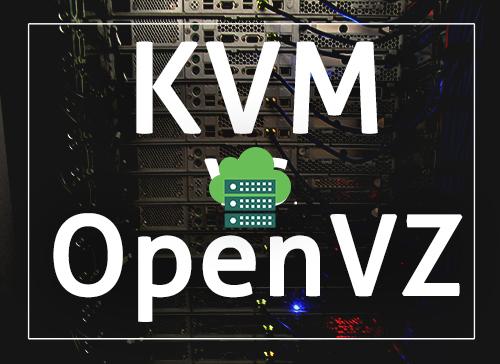When it comes to picking a VPS server, deciding between OpenVZ vs KVM is a typical debate. The two most used virtualization technologies for generating virtual dedicated servers are OpenVZ and KVM. Below is a brief overview of each virtualization technology to help you make an informed selection.

OpenVZ vs KVM which one is Better Performer
OpenVZ is a Linux VPS server that uses container-based virtualization. Each container in this case performs duties as if it were a separate server. You may reboot the containers separately and assign various processes, RAM, files, IP addresses, apps, and so on to each one. You also receive individual configuration files and root access for each container. This assures high-end performance from the Linux VPS server while requiring fewer resources from the host.
KVM, which stands for Kernel-based Virtual Machine, provides full virtualization of the VPS server. Using KVM virtualization, it is even feasible to run Windows and Linux VPS on the same computer. Each virtual machine will have its own virtualized hardware, such as a separate kernel, disk, network card, and so on. Because each virtual server will have dedicated virtualized hardware, you may operate it as a completely independent system.
The primary disadvantage of OpenVZ is that the kernel modules are available as soon as the host loads it. Furthermore, if you leave anything out of the virtualization, there may be no way to activate it afterwards. The primary drawback of KVM, on the other hand, is that it uses much more resources than OpenVZ. As a result, the decision between OpenVZ and KVM should be based on your specific requirements.

For example, if you want to execute user-space apps in a Linux VPS or if you want faster performance with limited resources and low overhead, OpenVZ is the ideal alternative. However, if you intend to run multiple operating systems on the VPS and have a more optimal environment similar to that of a dedicated server, KVM will be the best choice.

The risk of overselling (OpenVZ vs KVM): Overselling occurs when a host overcommits resources to specific accounts in the hope that not every account consumes all of those resources. While anything may be oversold, be wary of unscrupulous hosting firms who overcommit OpenVZ servers and place you on a system with too many containers. KVM might be oversold as well, although it is more isolated. Because OpenVZ hosts are frequently oversold, OpenVZ servers are generally less expensive than KVM servers.


